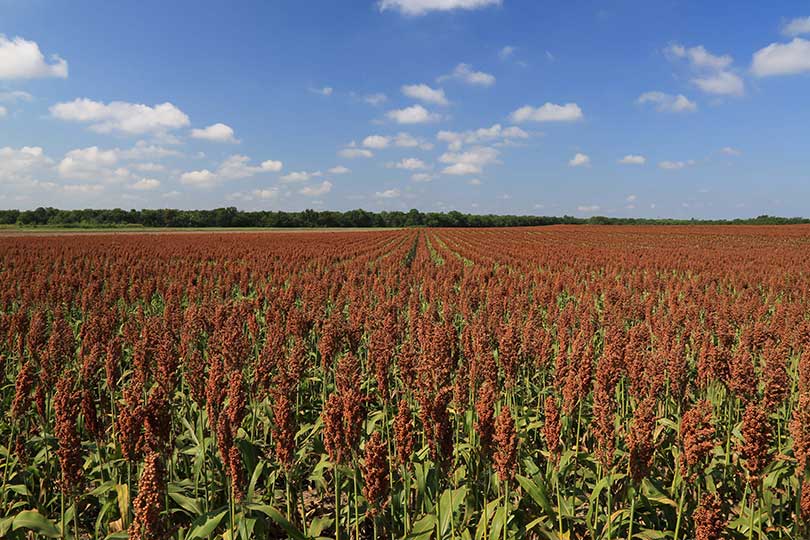By Justin Green
Staff Writer
Though it may be beneficial for sorghum growers, Dow AgroSciences’ Transform WG might not be available this year.
The insecticide, which helps farmers combat destructive sugarcane aphids, is in a battle with the Environmental Protection Agency (EPA) after a Court of Appeals in California implemented a rule requiring the agency to withdraw the federal registration for the sulfoxaflor insecticide.
The California court claimed “the EPA did not have sufficient data to unconditionally register at the labeled rates,” Phil Jost, marketing leader for U.S. insecticides at Dow AgroSciences, said.
Transform is a tool sorghum farmers rely on to control the pesky aphids that have become an increasing problem throughout sorghum acreage in the last three years.
During those years, Transform was given a Section 18 emergency use exemption by the EPA, which allowed farmers to use it in grain sorghum, according to Samuel Zapata, assistant professor and Extension economist at Texas A&M University.
The previous Section 18 exemption expired in October and hasn’t been renewed. That has Texas farmers worried.
For the past two years, Transform has “shown to be an effective product to control sugarcane aphids in South Texas and many other areas within Texas and other states,” Zapata said.
Without the insecticide, Texas farmers could face increased infestations.
“The sugarcane aphid poses a tremendous problem for sorghum growers throughout the state,” Texas Farm Bureau Commodity and Regulatory Activities Associate Director Brant Wilbourn said. “An infestation of sugarcane aphids can lead to reduction in yield from the plant not producing grain, as well as honeydew left on the plant’s surfaces which creates added problems during harvest.”
Agricultural groups submitted comments earlier this year requesting the emergency exemption for Transform. EPA usually reaches a decision on these exemptions within 50 days of receiving the request, but may take longer to review it, Wilbourn noted.
“Dow AgroSciences will work diligently with the EPA on achieving a renewed registration for these important products for the American farmer,” Jost said.
Until a final decision is reached, farmers do have another option—Sivanto. It’s as effective as Transform, but comes at a higher cost.
Zapata noted treatment for one acre using Transform costs just over $6, while Sivanto costs $9.
And if Transform isn’t available for farmers this year, sorghum acreage could drop.
“The Texas sorghum crop has a potential market value of $400 million at nearly 120 million bushels of production, and if product availability is a concern, this could be threatened,” Jennifer Blackburn, external affairs director at National Sorghum Producers, said.
With Texas farmers facing lower commodity prices, cutting input costs is necessary. And Transform is the cheaper alternative to help growers make a profit this year.

